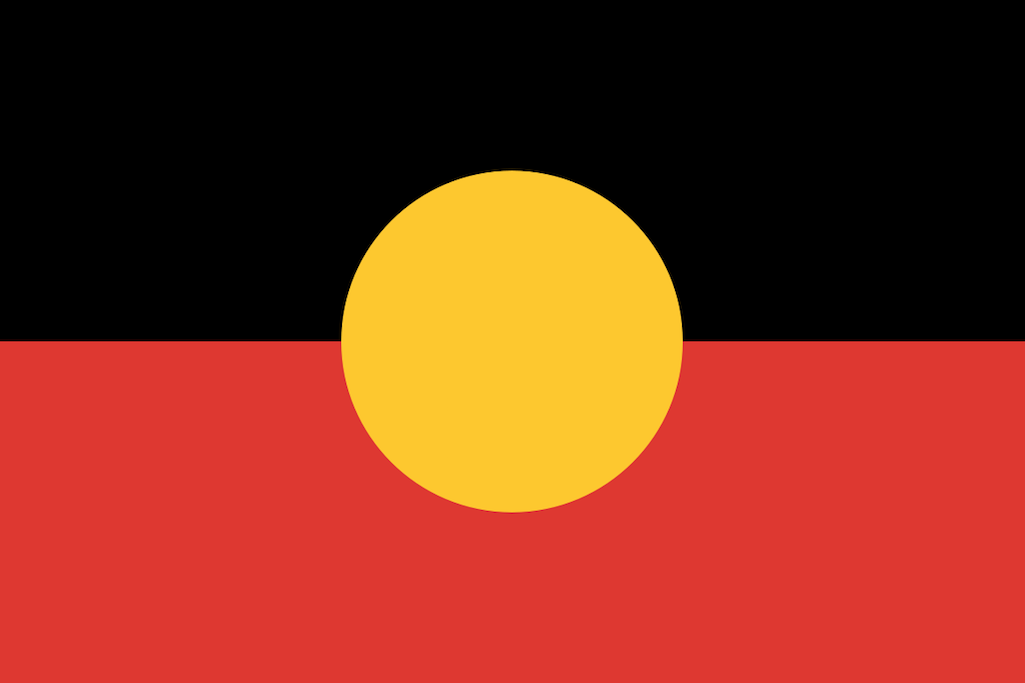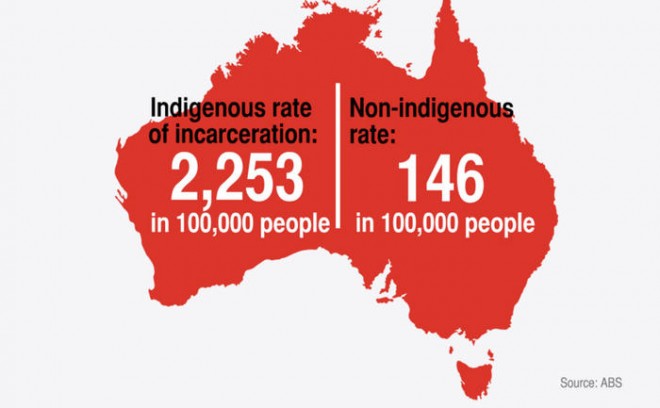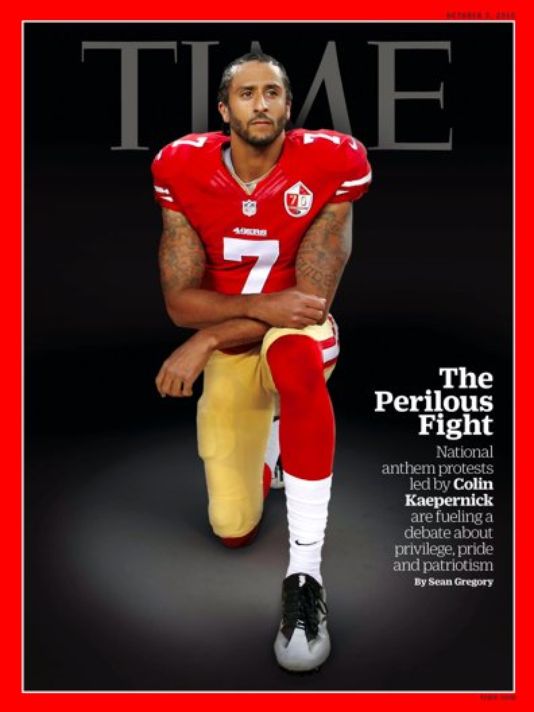Why I Won’t Be Standing For The National Anthem At The Grand Final
This is a call to help our mob seek justice.

It’s that time of year again. That time of the year when we get together with our community, have a couple of snags and scream at the telly watching two different teams go at it. I’m not talking about election days. I’m talking about the NRL and AFL grand finals.
Although they are two different codes, the routine is the same. Before the match itself we get the shit pre-game entertainment (yes offence, Meatloaf), and eventually rows formed by burly dudes looking off into the distance while someone desperate enough for the cash is wheeled out to belt out the national anthem.
Ever since I was a young fella, I’ve always wondered why we sing the national anthem at games, and even school (but that’s another conversation). I never identified with the lyrical content (what the fuck does girt mean?) and felt it didn’t apply to me. It’s kind of like when white dudes point out Beyoncé’s Lemonade is for black women. I don’t mean this in some pretentious way, like I’m not the target demographic — I mean literally. The national anthem wasn’t made for me.
I don’t know about you, but a song about national identity, which was written in 1878 when land was still being stolen and black people were still being massacred seems a little colonial to me. It was made for a White Australia. It was a song for a future of White Australia where black people didn’t exist. It then seems a bit weird to me that we are still singing it and expect black players to sing it too.
The Adam Goodes Media Frenzy Is Confronting And Uncomfortable. That’s Why It’s Important.
You might have seen that there was another black death in custody this week. Wayne Morrison, a 29-year-old inmate at Adelaide’s Yatala Labour Prison died as a result of head injuries after an altercation with five guards. The incident is now the subject of a police investigation while his family and the broader Aboriginal community deal with the trauma of his death. Wayne had not previously been convicted of any crimes, and this was his first time in prison. His family are distraught but determined to find justice.
The Royal Commission into deaths in custody was nearly 30 years ago, and Aboriginal people are still disproportionately affected by such incidents. There’s also a much better chance of us being incarcerated in the first place. Aboriginal children are 26 times more likely to be imprisoned than non-Indigenous people. Aboriginal people are 74 percent more likely to end up in prison as adults. Now, tell me the odds aren’t stacked up against us?

Graphic via SBS/ stats vis ABS.
So what does this have to do with the anthem? The national anthem is a representation of our colonial history and black deaths in custody are the impacts of our colonial history and the racism that continues to this day. We feel these impacts of colonisation and are constantly reminded of them through various representations of it — the flag, the anthem, the Southern Cross — then we are asked to participate in it.
So, this has led me to think about how powerful recent protests have been in the US. Many American NFL players have made the stand (or kneel, rather) against a justice system that doesn’t believe black lives matter by taking a knee during the national anthem. Colin Kaepernick in particular has led this action over the last few months and has since been joined by fellow players to show solidarity with the Black Lives Matter movement.
“This stand wasn’t for me,” Kaepernick has said of his protest. “This is because I’m seeing things happen to people that don’t have a voice, people that don’t have a platform to talk and have their voices heard, and affect change. I’m in the position where I can do that and I’m going to do that for people that can’t.”

But it isn’t just sports people who have done this. Janaye Ervin is a black American woman in the navy working in Hawaii who decided not to stand for the Star Spangled Banner just last week. “I feel like a hypocrite, singing about ‘land of the free’ when, I know that only applies to some Americans,” she said. I will gladly stand again, when ALL AMERICANS are afforded the same freedom.”
Obviously, kneeling and not singing alone doesn’t solve the problem, but it has helped highlight an important issue. The stand is provoking conversation and fuelling more and more action from people in positions of power. Just yesterday, Serena Williams made her first explicit statement about Black Lives Matter on Facebook.
All of this makes me wonder — why shouldn’t we do that here? Why shouldn’t our players take a stand against what these national anthems represent? We know it doesn’t represent our “modern” Australia. We know now is the time to take a stand against it.
This is a call to action for ALL players to show solidarity by not singing and taking a kneel during the national anthem this weekend at the NRL and AFL grand finals. Please share this message, and join in on the protest if you’re out on grand final day.
This is a call to help our mob seek justice.
–
Paul is a Gunai/Kurnai & Yorta Yorta man, Blacktivist, environmentalist, and artist.
–
Paul was a delegate of our youth unconference JUNKET which took place over the weekend. Over the coming weeks we’ll be sharing thoughts and features from some of our 200 delegates on the topics they raised.